More than 100 accused murderers have been given killer deals to the lesser charge of manslaughter in Victoria’s courts in a decade, shaving years off their sentences and leaving victims’ families feeling “powerless”.
Plea deals — considered so crucial that an academic believes the state’s court system would “collapse” without them — have led to 102 killers who faced life sentences for murder getting an average minimum jail term of just 5.8 years for manslaughter between 2014 and 2023.
Last year alone, 17 accused murderers got plea deals to manslaughter, a 10-year high that was matched in 2021, according to an analysis of sentencing outcomes by the Herald Sun.
Among last year’s 17 were brothers Brayden and Corey Smart and their mate Abraham Abas, who were handed sentences as low as 4.5 years for chasing down Nicholas Henry, 18, in the street and stabbing him to death, leaving him to die in the gutter.
His heartbroken mother Karen Henry believes the trio “worked the system” and said they were given manslaughter deals because of a lack of evidence over which one of them landed the fatal blow.
“All three are murderers in my eyes,” she said.
The three confessed killers smiled and hugged in the dock of the Supreme Court in August last year when they learned they’d be out of jail as early as 2025.
Just last month, the family of Bol Guak — stabbed to death while lying defenceless on his bed — was left devastated at the plea deal given to his remorseless killer.
John Gatwech-Chouil* plunged a large kitchen knife twice into the chest of his 25-year-old friend, who had generously paid for his killer’s dinner earlier that night in September 2022.
A motive for the killing was never established, with Gatwech-Chouil smiling and saying “I did it” moments after the fatal attack.
Mr Guak’s cousin Ban Diu wept as she lashed the state’s “unfair” justice system.
“How on earth can you kill someone … stab them twice and drag the knife? You mean(t) to kill him,” Ms Diu said.
“We aren’t going to have Bol anymore and you are going to get away with murder.”
He will be sentenced at a later date.
On average, the 102 Victorian killers who took manslaughter plea deals over the decade got maximum sentences of 8.3 years, with minimums of 5.8 years.
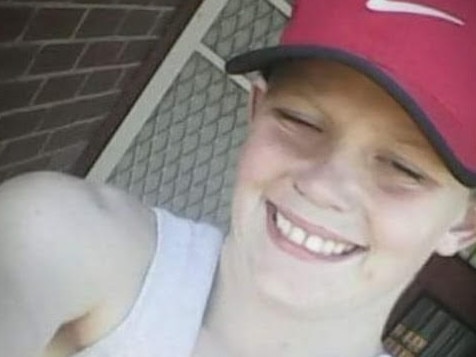
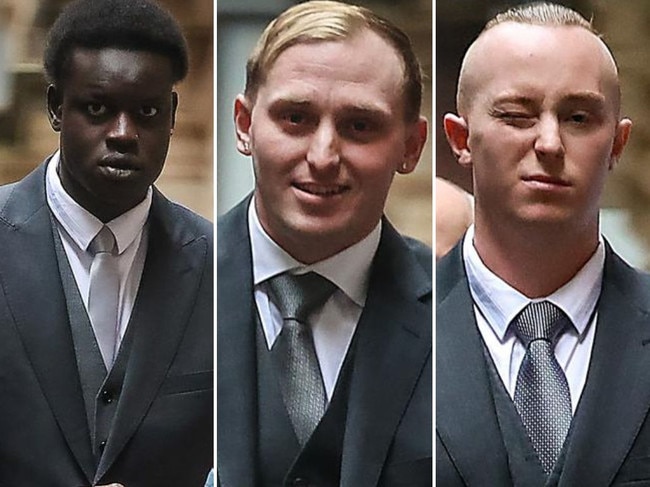
The median maximum sentence for manslaughter – which can carry up to 25 years jail – is nine years, according to the Sentencing Advisory Council.
Meanwhile murderers, who face a maximum of life, received a median of 22.5 years.
That means that on average, killers who made deals shaved 13.5 years off their possible prison sentences.
Victoria saw one of the highest numbers of plea deals from murder to manslaughter in 2023 and 2021, with 17 deals made each year between killers and prosecutors.
On average, Victoria’s Supreme Court sentences 10 killers who were originally charged with murder to jail for manslaughter via a deal every year.
A spokesman from the Office of Public Prosecutions said in many of the cases identified by the Herald Sun, a manslaughter plea deal was agreed to after pre-trial testing of witness evidence, or after court rulings excluded particular evidence from their trial.
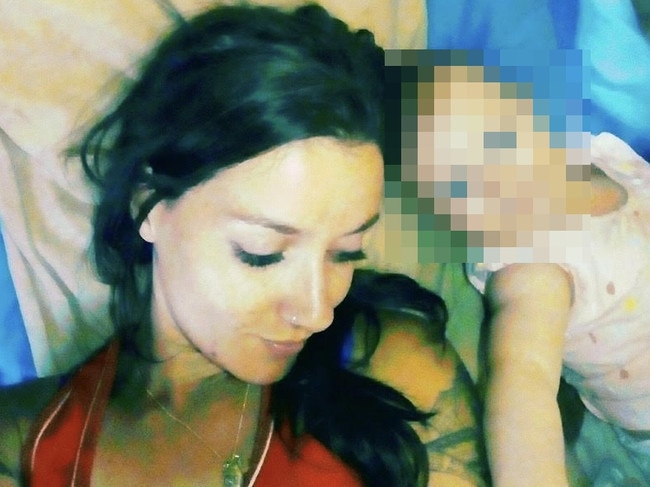
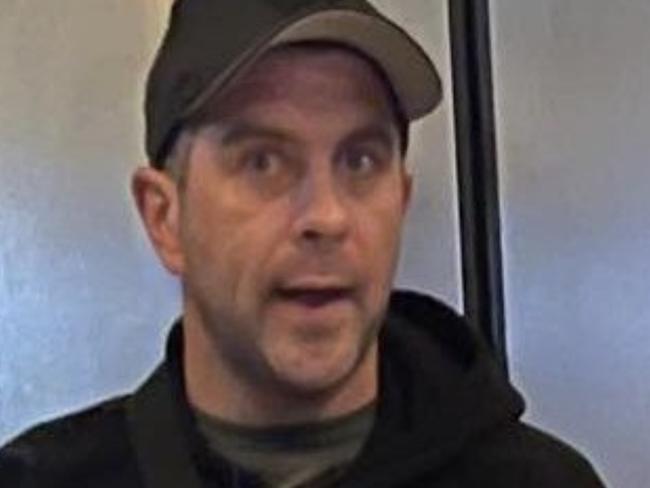
Among killers who were last year given deals were:
- Shannon Jeffrey, who got a minimum 7 years for bashing mum Kobie Parfitt to death before dumping her body in a mineshaft, then lying to authorities that she’d fled to QLD.
- Paul Philip McDonough, who beat his girlfriend Bekkie-Rae Curren-Trinca to death hours after he was released from jail, getting at least 8 years and 6 months.
- Andrew Price and Jake Brown, who forced Jarrod Lovison to take a deadly overdose of GHB to ‘teach him a lesson’ after coaccused Samantha Guillerme lured him to the bush. The men got at least 4.5 and 4 years respectively while Guillerme got 15 months.
- Heidi Bos, who could be out of jail in 3 years and 3 months, after she got her sex slave Stuart Henderson to attack her boyfriend Nicholas Cameron while he was out walking his dog, Misty.
The most notable deal of the decade was Borce Ristevski, who finally admitted in 2019 he killed his wife Karen at their Avondale Heights home before dumping her body in bushland, getting a minimum 9 years jail on appeal after he was initially sentenced to 6 years.
A recent Victims of Crime Commissioner report found that 63 per cent of victims felt they weren’t consulted about a decision to stop a prosecution or accept a guilty plea to a lesser charge.

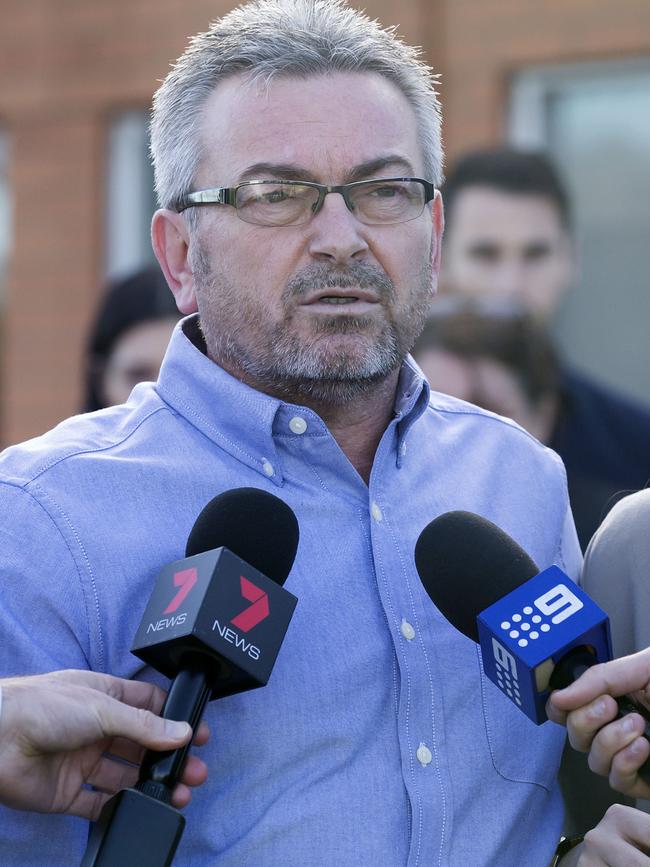
An OPP spokesman said for grieving families, “a decision to discontinue a murder charge and accept a plea of guilty to manslaughter can be unwelcome and disappointing”.
“The views of a victim’s family are a weighty and important consideration when making these decisions,” he said.
“They will always be considered along with all other relevant factors in a particular case. However, if there are no reasonable prospects of conviction for a charge, it must not proceed.”
He said before entering into negotiations, the OPP considered the strength of the evidence, the likelihood of an acquittal, and the prospect of conviction.
*John Gatwech-Chouil’s wasn’t included in the Herald Sun’s 2014 to 2023 data analysis of murder-manslaughter plea deals as his case was resolved in 2024.
‘System would collapse’ without plea deals
Up to three quarters of criminal cases before Victoria’s courts are resolved through plea deals, a criminology expert says.
A “critical but hidden” process, prosecutors and defence lawyers negotiate the charges and even the facts of a case in exchange for a guilty plea.
“The process is invisible, it happens outside the court, in corridors and phone calls,” said RMIT criminology lecturer Monique Moffa, who is doing her PhD in plea negotiations at Monash University.
“I think it’s got the potential to contribute to mistrust in the community.”

Ms Moffa said researchers at Monash had found 75 per cent of Victorian criminal cases resolve in a guilty plea, with lawyers believing almost all of those cases — from 80 to 100 per cent — involved plea negotiations.
So crucial to the court process, Ms Moffa said: “I think the system would collapse without them.”
The expert — who has been interviewing female accused and defence lawyers about their experiences with plea negotiations — said there was no solid data on the number of cases resolved through a deal.
She said it would boost transparency by publishing data, “but if you try and regulate it, it might slow the process down” when the point was to expedite cases through the courts.
Monash researchers found that the more serious the crime, the less likely a plea offer or negotiation would take place.
Ms Moffa said there were less guilty pleas and deals in sex assaults and homicides “because they’re the ones people don’t want to admit to”, while prosecutors were less interested in negotiations in family violence cases “because there’s such a spotlight on it”.
“The more serious the offences are the more they want to be really sure what they’re offering,” she said.
Despite this, Ms Moffa said a plea deal was still enticing for an accused because they get a reduced sentence for the utilitarian value of resolving the case.
“A sentence discount is usually a motivating factor for a plea of guilty.”


Setka says AFL umpire boss shouldn’t be involved in ‘working man’s sport’
Former Victorian CFMEU leader John Setka claims his criticism of head of umpiring Stephen McBurney was justified and that he was not trying to coerce the AFL.
‘F**king idiot’: Killer’s friend’s alleged role in Hannah McGuire cover-up
A mate of accused murderer Lachlan Young says he was “thrown under the bus” as more evidence emerged of how the 23-year-old Clunes woman was killed and what happened to her body.